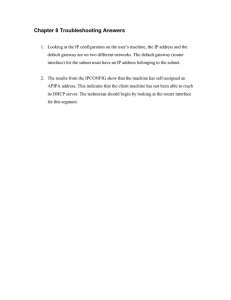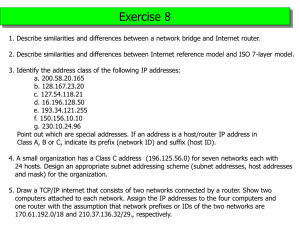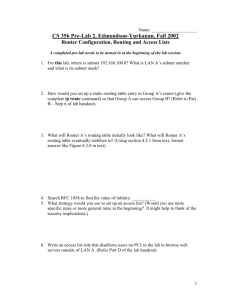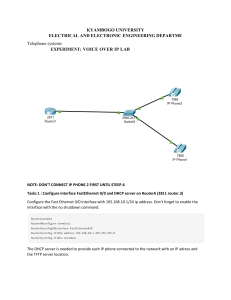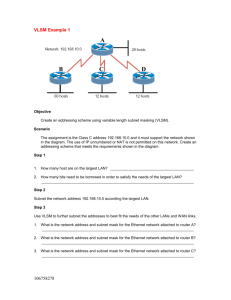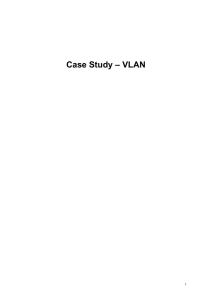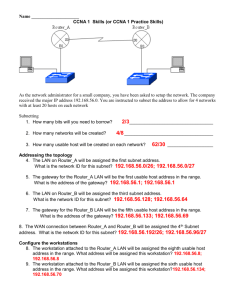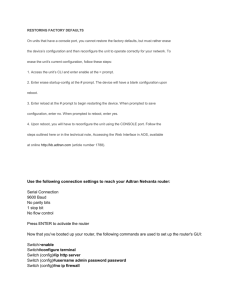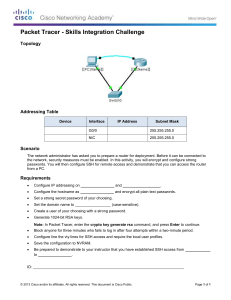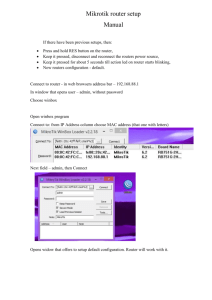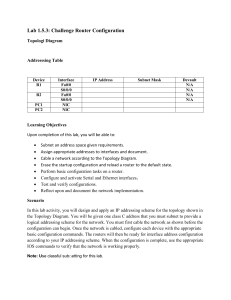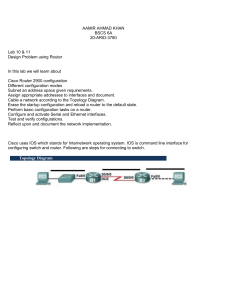CCNA Final Config Ex..
advertisement
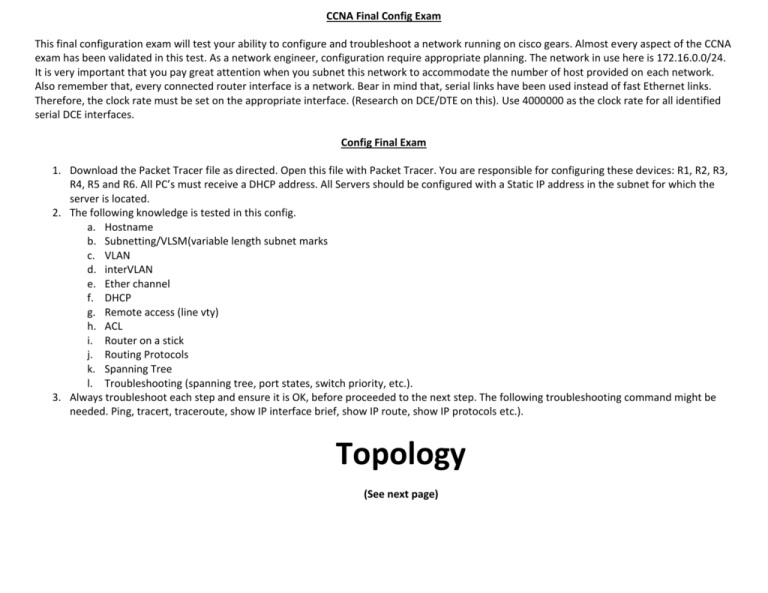
CCNA Final Config Exam This final configuration exam will test your ability to configure and troubleshoot a network running on cisco gears. Almost every aspect of the CCNA exam has been validated in this test. As a network engineer, configuration require appropriate planning. The network in use here is 172.16.0.0/24. It is very important that you pay great attention when you subnet this network to accommodate the number of host provided on each network. Also remember that, every connected router interface is a network. Bear in mind that, serial links have been used instead of fast Ethernet links. Therefore, the clock rate must be set on the appropriate interface. (Research on DCE/DTE on this). Use 4000000 as the clock rate for all identified serial DCE interfaces. Config Final Exam 1. Download the Packet Tracer file as directed. Open this file with Packet Tracer. You are responsible for configuring these devices: R1, R2, R3, R4, R5 and R6. All PC’s must receive a DHCP address. All Servers should be configured with a Static IP address in the subnet for which the server is located. 2. The following knowledge is tested in this config. a. Hostname b. Subnetting/VLSM(variable length subnet marks c. VLAN d. interVLAN e. Ether channel f. DHCP g. Remote access (line vty) h. ACL i. Router on a stick j. Routing Protocols k. Spanning Tree l. Troubleshooting (spanning tree, port states, switch priority, etc.). 3. Always troubleshoot each step and ensure it is OK, before proceeded to the next step. The following troubleshooting command might be needed. Ping, tracert, traceroute, show IP interface brief, show IP route, show IP protocols etc.). Topology (See next page) Questions. 1. What is the memory in; Router Memory 2. 3. 4. R2 R3 R4 R5 R6 Which command did you use to find out the information requested in question 1 above? ________________________________ What is the IP address scheme and IP addresses configured on your routers interfaces? Router/Interface IP Subnet Mask R1-F0/0 R1-S1/0 R2-S1/0 R2-S1/1 R2-S1/2 R3-Se1/1 R3-f0/0 Router/Interface IP Subnet Mask R4-F0/0 R4-F0/1 R4-S1/2 R5-F0/1 173.8.121.212 255.255.255.248 R5-F0/0 R6-F0/0 R6-F0/1 What is the IP address, subnet mask and Default gateway of the following servers? Server Name IP Subnet Mask Default gateway 5. 6. 7. 8. 9. 10. R1 Public DNS Server Finance Webserver Domain Controller Public Webserver Configure router on a stick on R6, replacing X with the VLAN ID for each of the sub interfaces configured. Configure a DHCP pool for each of the Networks created to handle a specific VLAN traffic. Configure trunk ports as needed. Configure both local and virtual password on all devices. Use password “cisco” and force vty password login as well as encrypt all password. Configure and ACL to allow only PC’s in VLAN40 to telnet into R5. However, all other traffic to R5 should be allowed. Change the hostnames of your router to reflect the table below. Router Hostname R1 Minnesota R2 Atlanta R3 Maryland R4 Texas R5 Internet Router 11. Set a banner page with the following words in each router; “System is monitored 24/7.” 12. Can you ping 173.8.121.209 from PC? If not troubleshoot. 13. What is the prominent text on the main web page found on the public web server? _____________________________________ R6 Ohio
